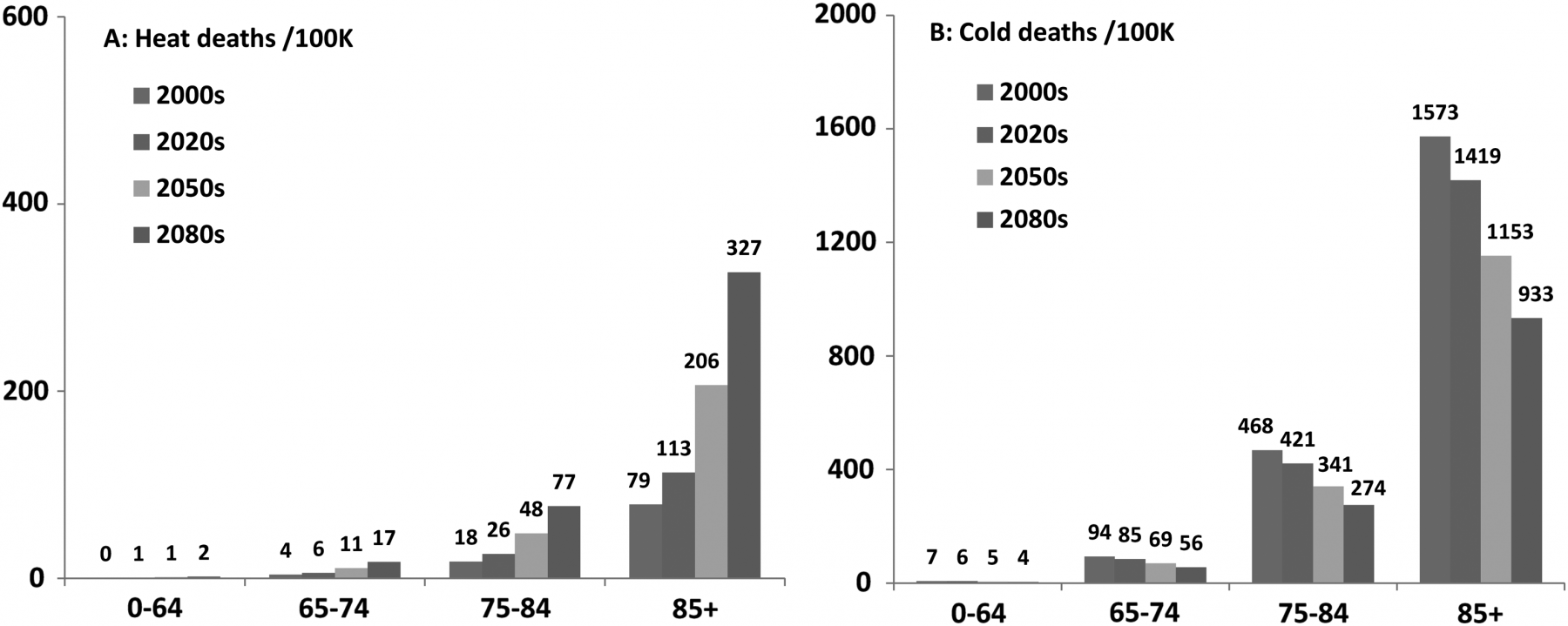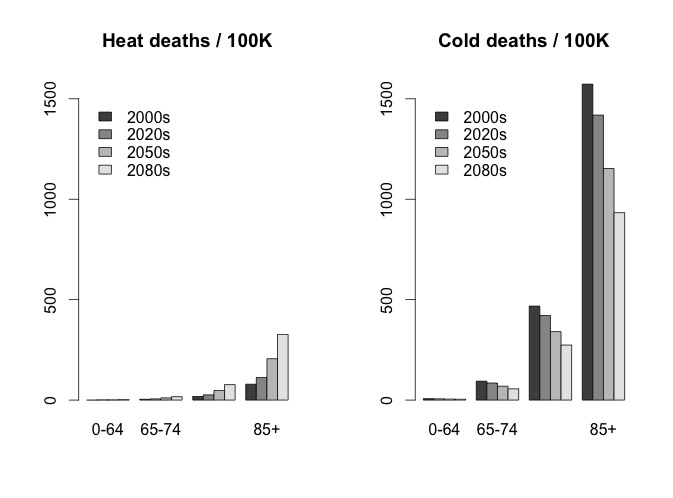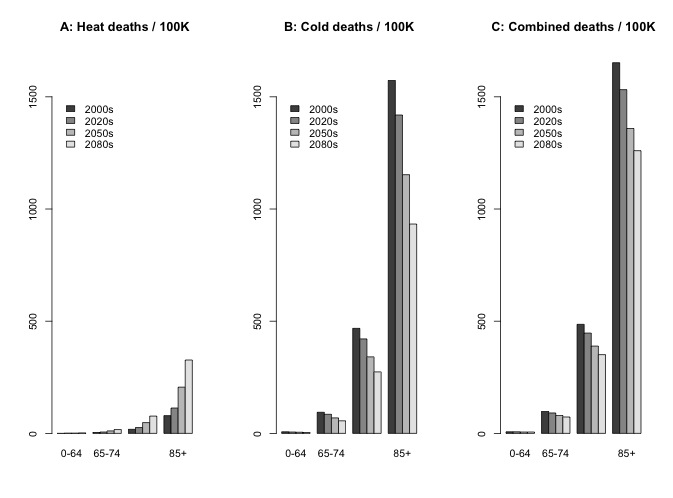More deaths due to climate change? Or maybe not.
As of the 23rd May 2022 this website is archived and will receive no further updates.
understandinguncertainty.org was produced by the Winton programme for the public understanding of risk based in the Statistical Laboratory in the University of Cambridge. The aim was to help improve the way that uncertainty and risk are discussed in society, and show how probability and statistics can be both useful and entertaining.
Many of the animations were produced using Flash and will no longer work.
Coverage of a paper just published by Journal of Epidemiology and Community Health included dramatic headlines such as the Guardian's Heat-related deaths in the UK will rise 257% by 2050 because of climate change. But a closer look at the numbers in the paper paints a rather different picture.
Figure 4 of the paper shows the number of deaths expected per 100,000 people in each category, and how the authors estimate this will change into the 2080s.

But the vertical axes for the two plots are different, and they should perhaps have been drawn like this.

Or even added in a 'combined plot' [added 6th February 2013]

This clearly reveals that, in terms of rate per 100,000, the decline in cold-related death rate easily outweighs the increase in the heat-related death rate. So overall, for any individual in the UK, the risk of a temperature-related death is expected to fall steadily due to climate change. Bring it on!
But since there are going to be more old people in the future, the absolute numbers of deaths is going to increase - and this number was emphasised by the authors and got the headlines.
The abstract of the paper includes the phrase "The increased number of future temperature-related deaths was partly driven by projected population growth and ageing." According to the projections in the paper, if the population make-up did not change, the overall mortality risk would go down. So it would have been more accurate to say "The increased number of future temperature-related deaths was wholly driven by projected population growth and ageing.".
But that is clearly not the message that the authors wanted to convey. It is unfortunate that this kind of presentation gives ammunition to those who say that the effects of climate change are being exaggerated.
- david's blog
- Log in to post comments

Comments
jfreed27
Wed, 05/02/2014 - 1:30pm
Permalink
The article on heat deaths from climate change
Here is the article's Results:
" A significantly raised risk of heat-related and cold-related mortality was observed in all regions. The elderly were most at risk. In the absence of any adaptation of the population, heat-related deaths would be expected to rise by around 257% by the 2050s from a current annual baseline of around 2000 deaths, and cold-related mortality would decline by 2% from a baseline of around 41 000 deaths. The cold burden remained higher than the heat burden in all periods. The increased number of future temperature-related deaths was partly driven by projected population growth and ageing. "
So, we have an increase in heat deaths of 5000 and a decrease in cold deaths of about 800. Not fortunate!
Also, UK latitude is a colder weather one. Warmer latitudes will increase heat deaths/cold deaths in even greater proportions
robmat59
Wed, 05/02/2014 - 5:53pm
Permalink
Rates v. absolute numbers
shak
Fri, 07/02/2014 - 5:32pm
Permalink
Author response
david
Tue, 18/03/2014 - 9:15pm
Permalink
"temperature-related deaths"
Thanks for this: I agree that it is good to consider the impacts separately, but 'temperature-related deaths', to my understanding, refers to deaths from both hot and cold temperature. Otherwise they are 'heat-related-deaths' or some other phrase. Both are being considered, but all the prominence is given to just one outcome measure. David
pmbbiggsy
Tue, 17/02/2015 - 1:48pm
Permalink
Modeled, not real deaths in the 2050s